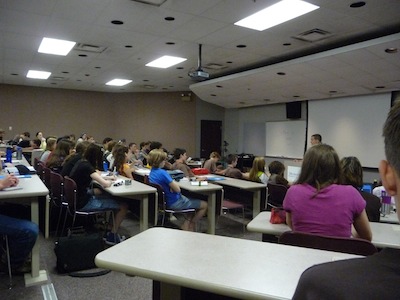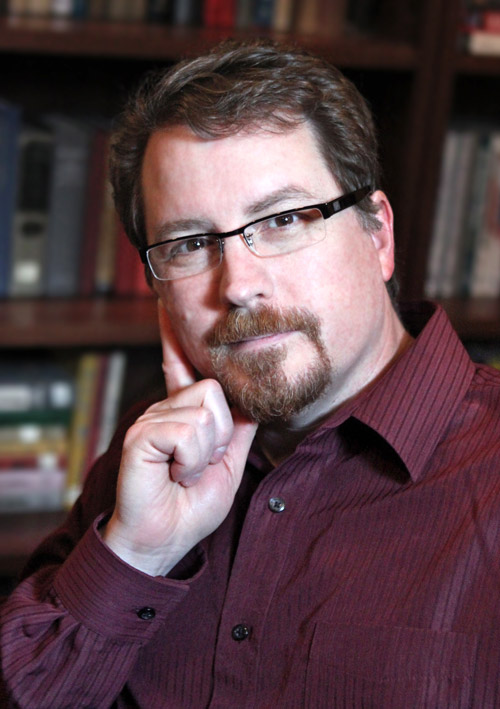Is Freelance Editing a Good Career for You?

By C. S. Lakin, Guest Contributor
We know many of you wonder whether freelance editing would be a good career path for you. At our 2016 Summer Workshop, C. S. Lakin—“Susanne”—offered sessions on freelance editing. If you weren’t able to make it to the Summer Workshop, this post makes some of her insights available to you!
** Susanne is offering One Year Adventure Novel students $100 off her courses, including her online course “How to Make a Great Living as an Editor”! (Coupon code: “OYAN”)
She also offers would-be editors personal mentoring and consulting. If you are an OYAN student, her rate is only $50 an hour (regular rate is around $120/hour)!
Freelance editing, to me, is the perfect career choice for a writer. It allows for creativity and much freedom.
Yet it has its challenges and drawbacks.
All of these should be considered carefully before you launch into freelance editing, at least on a full-time basis.
Let’s look at the ADVANTAGES.
1. The number-one advantage is that you get to be your own boss.
You don’t have to follow another person’s schedule or methods. You can design your unique editing business and style and deal with clients the way you choose. Freelance editing means you are only responsible to yourself for the work you do and how well it’s done.
2. Another great advantage is that you have a very flexible schedule!
You can schedule your work around your life instead of the other way around. If you have downtime in a dentist’s waiting room, or in a car on a road trip, you can get your editing done. You can do some of the work in the evening or on the weekend if that works better for you.
You can also take time off whenever you want or need to. If you’re not feeling well, you can sleep in, or take a nap, or quit early. You don’t have to schedule your vacations around coworkers’ plans. And you’re not limited to the number of days off per year that your company determines is appropriate. As long as you get the work done in a timely manner, how and when you do it is up to you.
3. A lot of things you would buy anyway are tax deductible.
This includes your computer and other office equipment and supplies, your Internet service, books, even the expenses of going to writers’ conferences.
4. You get to decide whom you work with and whom you don’t.
If a client becomes obnoxious, or the work he wants you to edit is not something you want to subject yourself to, you can choose not to work with that person. In an office, if you have a personality clash with a coworker, you still have to work with him or her—or look for a new job.
5. If you enjoy working with words, chances are you’ll absolutely love what you do.
This is one of the best benefits. You’ll enjoy learning how words are spelled and how sentences should be punctuated. You get to do work you love and get paid to do it!
6. Helping writers is deeply fulfilling.
It’s true. Helping writers improve their craft and see their dreams realized brings a deep sense of satisfaction. It really excites me when a client raves about how much better his manuscript reads after I’ve edited it. I love it when a client tells me the manuscript I helped edit got accepted by a publisher! My clients often send me complimentary copies of their published books with my name listed in the acknowledgments. Some of my clients win big awards, get movie deals, and land book contracts.
It will really touch your heart to see people’s lives being changed through something you helped make happen. There is no greater joy than a job that brings you this kind of uplifting response.
7. Publishing trends and developments of recent years make this is a great time to be a book editor.
There is no lack of work. Hundreds of thousands of writers are now self-publishing books, and they need editors. Most understand how important it is to have their work professionally edited and proofread, so there has never been a better time to be an editor.
DISADVANTAGES
Now, there are some disadvantages to freelancing editing as well.
1. It can take a long time to get established, and there’s a lot of competition out there.
Not unlike writing! But as with anything, if you work hard and strategically, you can be a success. I have an online course you can take—“How to Make a Great Living as an Editor”—that shows the very simple steps I took to grow my editing business from barely nothing to a six-figure income in three years—and only editing part-time.
Yes, there are a lot of editors out there (just as there are a lot of doctors, lawyers, and schoolteachers), but all the editors I know who have applied themselves and strategically positioned themselves in the marketplace have done well.
2. Even after you’ve been in the business for a while, the income still isn’t steady.
You don’t pick up a paycheck on the first and the fifteenth of the month, so it’s a little more difficult to budget for paying bills.
3. You have zero paid time off.
No lunch hour, no personal time, no paid vacation or sick days. Even work-related activities, such as attending a writers’ conference, aren’t things you get paid by the hour to do.
4. You have none of the benefits associated with full-time work.
These include medical/dental insurance and retirement plans or pensions.
5. There are some expenses.
You have to have a really good, fast, up-to-date computer with Microsoft Word. Good Internet access is essential. You’ll need to invest in books, memberships, online subscriptions, etc.
6. All responsibility is yours.
Occasionally you’re going to have a dissatisfied client for one reason or another, and you don’t have anyone to pass him off to . . . or blame.
7. You don’t have nearly as much time as you think you would to work on your own writing.
For me, this is one of the more challenging disadvantages. You might think editing would be a great way to support your writing habit. But you may find you’re so busy editing for other people, you don’t have time to work on your own manuscripts!
This might be the case with any full-time job you take on. However, spending hours correcting others’ writing can be creatively draining in a way a “regular” job wouldn’t.
8. There are a lot of unbillable hours you have to put in.
The only hours you get paid for are the hours you spend actually editing for clients. Unbillable hours include the following:
· Administrative responsibilities, such as organizing, filing, doing paperwork, etc.
· Following up on potential clients. This takes a tremendous amount of time. You’ll be answering a lot of emails, discussing job costs, keeping track of your client database, and recording revenue.
· Marketing. This can include creating and maintaining a website, doing sample edits, reading and responding to email from clients, making flyers and business cards, and networking. My course “How to Make a Great Living as an Editor” gives you a clear, powerful strategy for success that’s worked perfectly for me.
· Computer glitches. Since you don’t have an IT department you can call (unless you happen to have a friend or family member who’s willing to help you), you have to figure out how to fix problems yourself.
Do these disadvantages seem overwhelming? It’s important to consider all sides of freelance editing as a career. But the truth is, I believe you’ll love this job more than anything you’ve ever done in your life.
For me, the advantages far outweigh the disadvantages. If that’s true for you too, this can be a very rewarding way to earn a living!
…
If you have questions about freelance editing, Susanne would love to hear from you! Be sure to mention that you are a student with The One Year Adventure Novel.
…
 About C. S. Lakin
About C. S. Lakin
C. S. Lakin is the award-winning author of twenty-two books and blogger at Live Write Thrive, a top-ten site for writers. She works as a copyeditor and writing coach in the book publishing industry, specializing in manuscript critiques. Her writing craft book series, The Writer’s Toolbox, teaches aspiring and experienced novelists how to write terrific stories. She loves nothing more than to help writers craft stellar novels and experience success and joy in their writing journey.



Hi,
Daniel Schwabauer, I’ve always been interested in the film and media industry, and video editing allows me to be a part of it while still having the flexibility to work on my own terms. Thanks for the sharing the content..